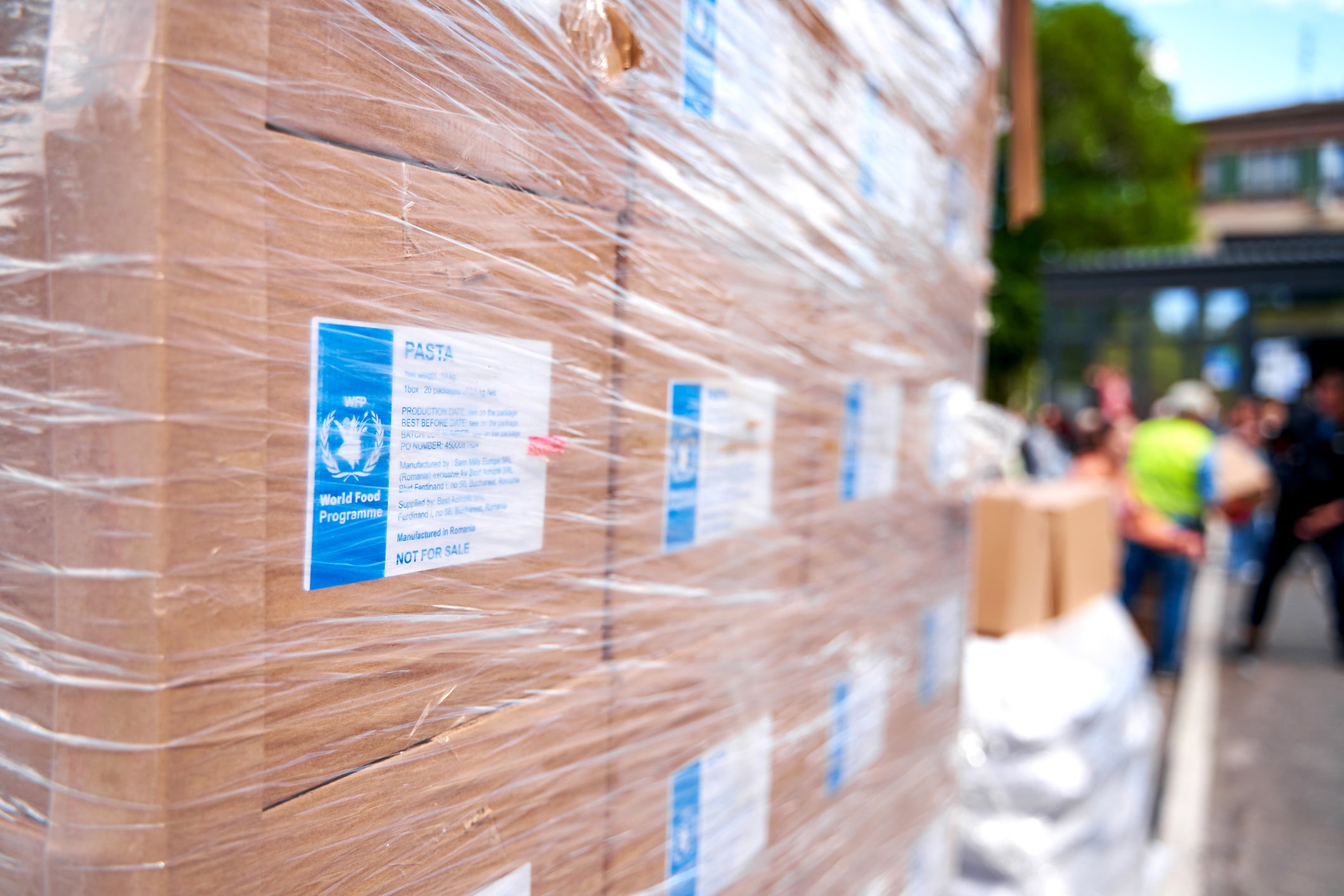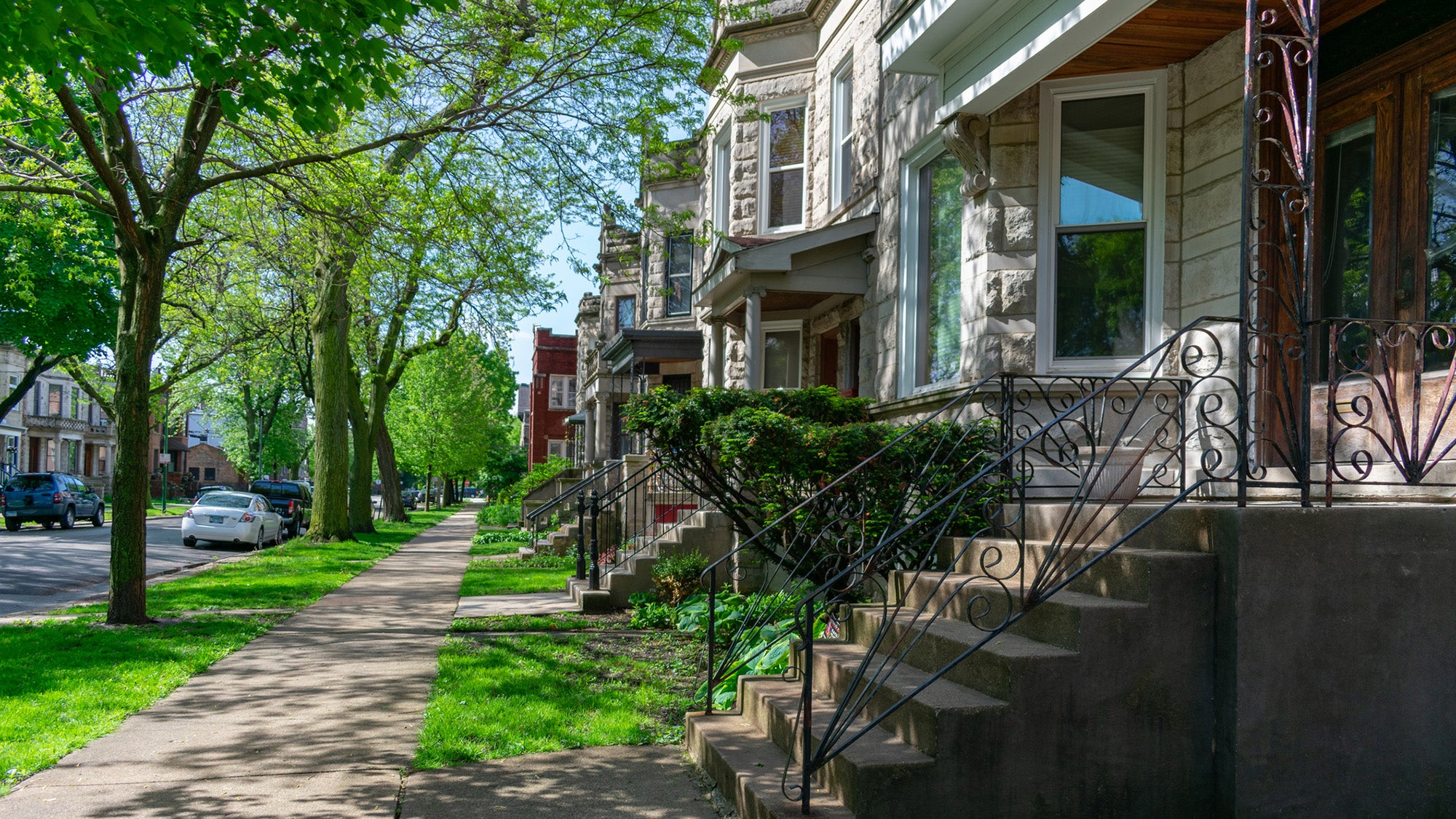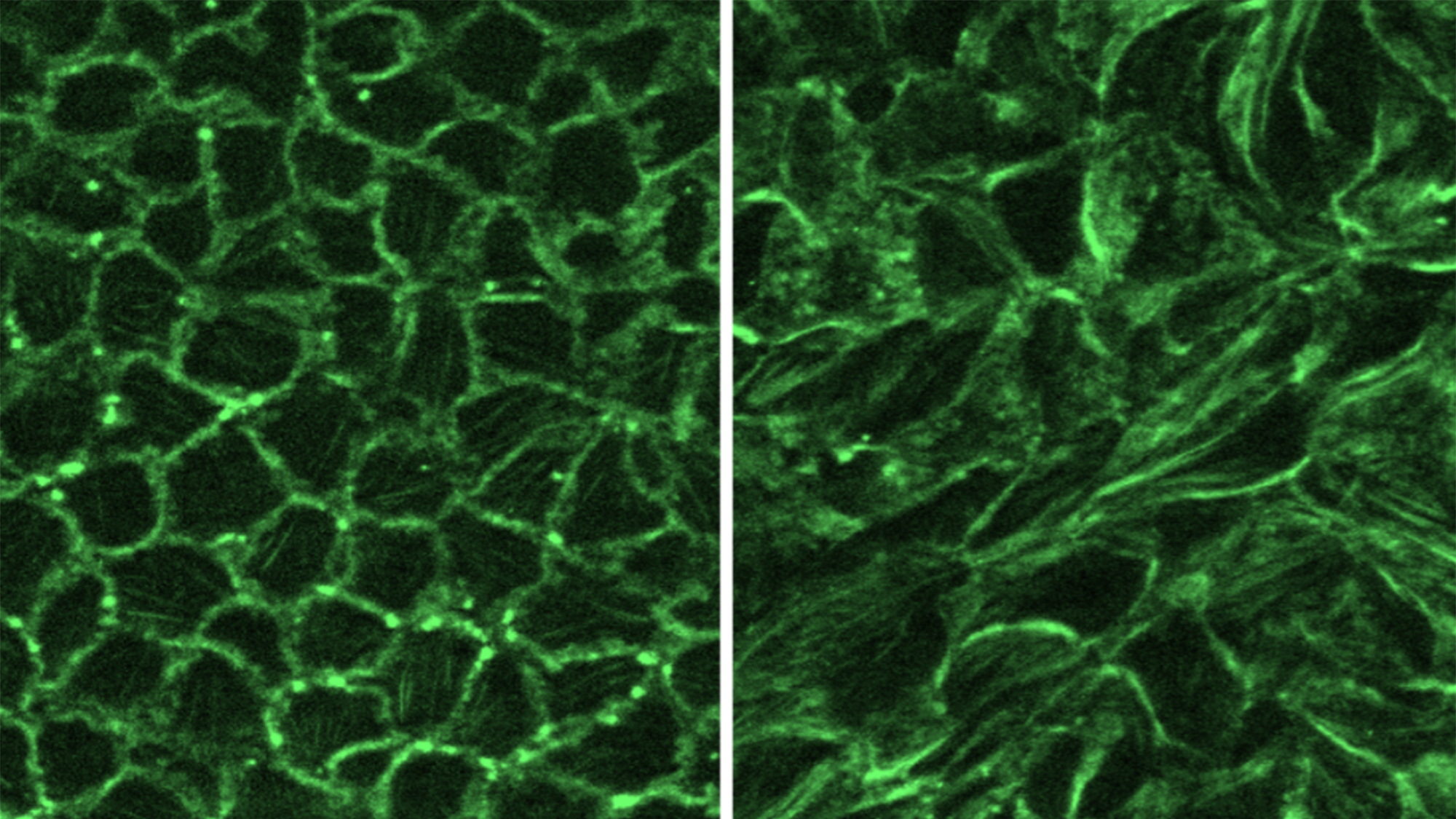Sustainably rebuilding Ukraine
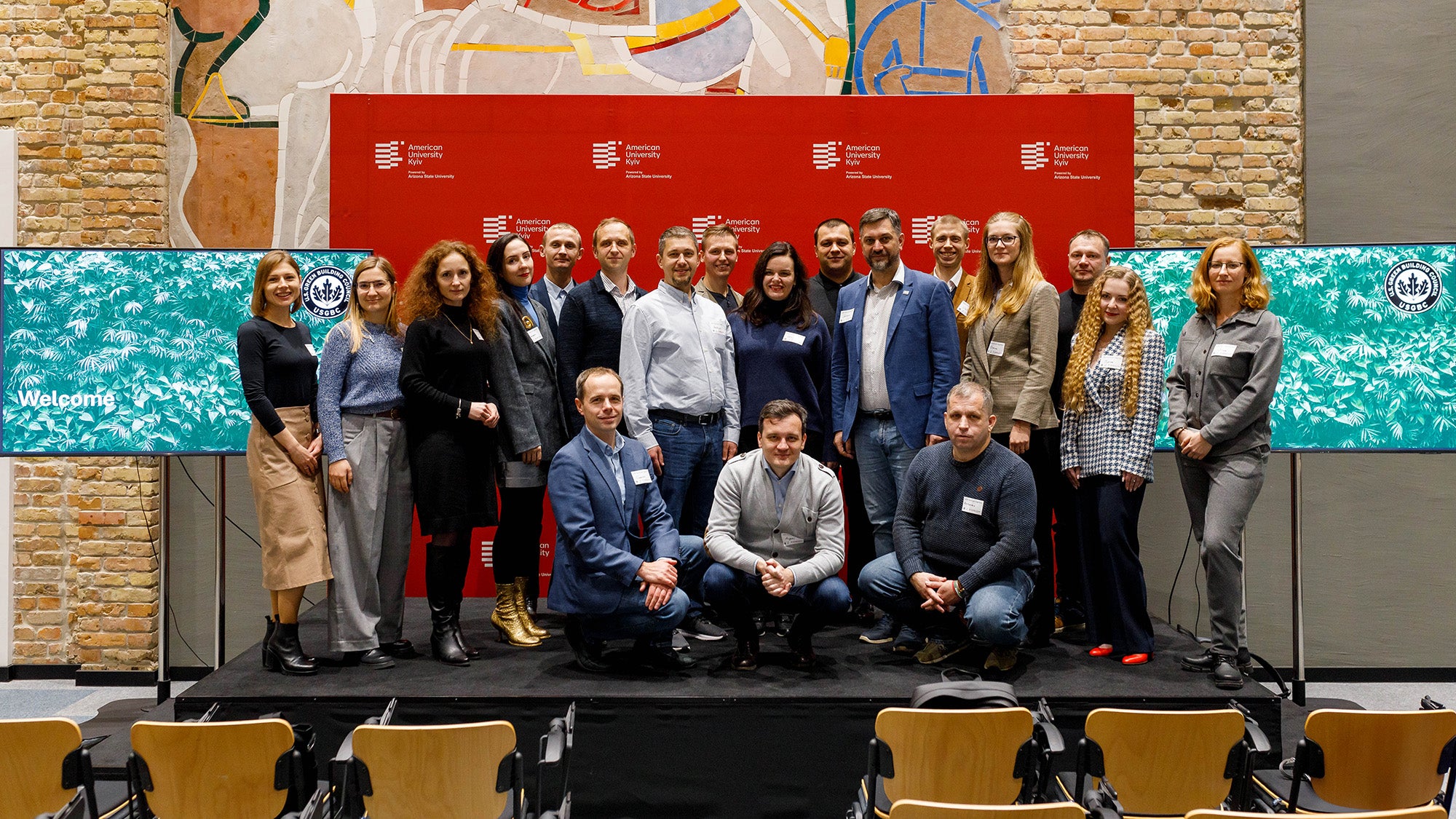
New course aims to support professionals from across Ukrainian society in rebuilding their country, with people, planet, and resilience in mind
Since Russia invaded Ukraine in February 2022, many thousands of structures—including residential and administrative buildings, health care facilities, power plants, and educational and cultural institutions—have been damaged or destroyed.
A new course at Harvard T.H. Chan School of Public Health is aimed at supporting Ukraine on the road to rebuilding, sustainably. The free course, “Leadership for Sustainable Reconstruction of Ukraine,” launched in September and quickly drew a hefty pool of applicants—nearly 300 people applied for just 60 spots.
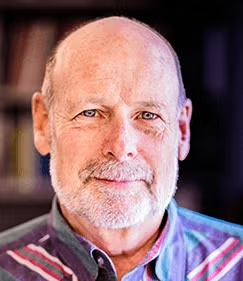
“Planning this course, we didn’t know how many people would apply,” said Jack Spengler, Akira Yamaguchi Professor of Environmental Health and Human Habitation, who created the course along with Linda Tomasso, research associate in the Department of Environmental Health. “When I saw how many did, it moved me. We really hit a touchstone. The demand was there and was reflected in what applicants told us in interviews, to the effect of ‘thank you for not forgetting us.’”
Taught in weekly Zoom sessions that begin at 7 p.m. in Ukraine, the semester-long course aims to prepare professionals from a variety of civic sectors and organizations to help lead rebuilding efforts. Harvard and other experts teach the curriculum—which covers low-carbon infrastructure, renewable energy, resilience planning, and green building standards—through interactive sessions and collaborative projects. Beyond the focus on sustainable rebuilding, the course also delves into related areas such as financing, public-private partnerships, reconciliation and nation-building, and ethics and institutional integrity.
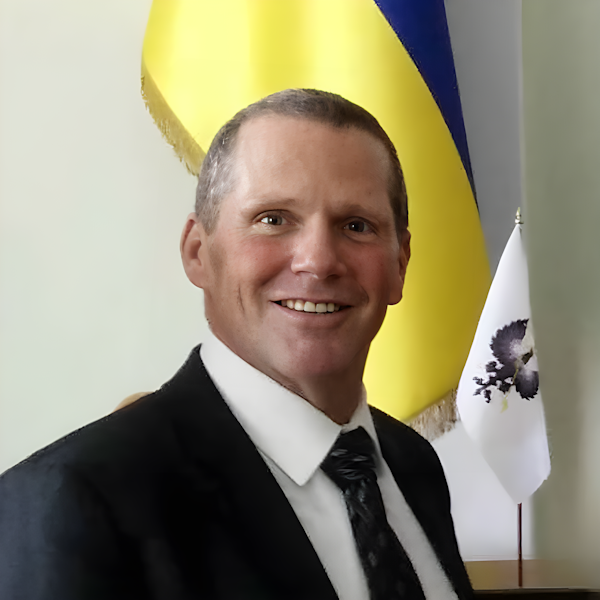
“There’s a clarity I can sense coming out of this course about how leadership, green building standards, sustainable practices, and financing intersect and inform each other,” said course participant Geoffrey Glenn, an American with expertise in community and economic development, hazardous waste remediation, and solid waste systems, who has been living and working in Ukraine for about a decade.
Incorporating applicant feedback
The idea for the course originated in the fall of 2023, when a former student of Spengler’s, Ulrich Suter—an expert in sustainable infrastructure who had taken a course on green buildings with Spengler years earlier at Harvard Extension School—contacted Spengler to see if there was any way for Harvard to help Ukraine rebuild. Spengler liked the idea and proposed a course that would offer training as well as foster a network of people committed to the rebuilding effort. Kari Nadeau, John Rock Professor of Climate and Population Studies and chair of the Department of Environmental Health, gave the green light, and a donor family concerned about environmental health issues provided $50,000 in seed funding, which enabled the course to be offered for free.
Spengler worked with Tomasso last spring to plan the course curriculum and create a website, working with Harvard’s Ukrainian Research Institute and the Davis Center for Russian and Eurasian Studies for advice and help getting the word out. The two centers promoted the course on their websites, and word soon reached Ukrainian embassies across Europe, the World Bank, and the European Development Bank, among others. “And then,” Spengler said, “the applications started pouring in.”

Applicants came from across Ukrainian society, including government ministries, parliament, the legal and financial sectors, academia, and nongovernmental organizations. During the interview process, Tomasso was struck by how much everyone has suffered during the war. “I interviewed one participant who apologized because he had a big shattered window behind him,” she said. “He said the damage happened during a bombing of a nearby children’s hospital.”
From the interviews, Tomasso and Spengler learned what mattered most to applicants and tweaked course content accordingly. For instance, a number of people highlighted the importance of fighting corruption in Ukrainian society, so Tomasso and Spengler included a session on ethics and institutional integrity.
Another session, focused on mental health, was also an outgrowth of applicant feedback. It featured Adele Houghton, instructor in the Office of Education and an architect, discussing “trauma-informed design,” which recognizes that the way infrastructure is built can influence health and well-being. In an interview, Houghton noted, for instance, that some people who’ve gone through trauma might feel panic or stress in a space without windows, while others may be sensitive to loud voices or smells—and that trauma-informed design can take these issues into account.
‘Ten hands go up immediately’
Participants’ feedback about the course has been extremely positive and they appreciate the opportunity to network with faculty and fellow students, Tomasso said.
“The degree of participation has flabbergasted us,” she said. “We begin each session with a recap of the previous session, and as soon as we begin, ten hands go up immediately.” There’s also a busy chat room, she said. “They’re putting in their own links to resources, commenting and supporting one another, sometimes opposing each other’s comments,” she said. “They’re not holding back in any way.”

Maksym Karpash, vice rector and professor of engineering/construction at King Danylo University, who has also served in the past as a consultant on reconstruction projects in Ukraine, noted that many buildings in his country, especially public buildings, are “old-fashioned, not efficient, and not comfortable.” He hopes to use knowledge gained in the Harvard Chan course in his own courses at King Danylo, as well as in projects to rebuild and repair schools, clinics, hospitals, and housing.
Both Karpash and another student—Inna Semenenko, professor and head of the Resource Center for Sustainable Development at the Volodymyr Dahl East Ukrainian National University—were particularly interested in a presentation from Ramon Sanchez of the Alliance for Tribal Clean Energy that touted the benefits of using wind power in Ukraine. Said Semenenko, “That is something I would like to dig into later, to make some technical and economic assessments, because in Ukraine wind energy is not something that’s widely used.”
Glenn noted that the course has spurred conversations with both students and presenters on potential collaborative efforts. “The faculty network is amazing,” he said. For example, after a presentation by the U.S. Green Building Council’s Peter Templeton on sustainable building standards, Glenn mentioned to him that he is working on a zero-waste initiative with colleagues in Ukraine. “Within five or six seconds he wrote me back with a list of contacts that I’ve already reached out to who are experts in the field of zero waste,” Glenn said.
Students had a chance to connect in person at an Oct. 25 event in Kyiv, organized by Maksym Kryvosheiev of the Ukraine Green Building Council, that drew about 35 members of the class together. It was a welcome break given the war’s daily grind, said Karpash and Semenenko.
“You never know if you are safe or not,” said Karpash. He said that when sirens go off to signal incoming bombs, he and his family position themselves between two walls in their apartment, typically in the bathroom. “It’s not easy,” he said.

Semenenko recounted how her university, based in Luhansk near the eastern border with Russia, had to relocate twice—first to Sievierodonetsk, still in the Luhansk region, and then to Kyiv, where it’s currently operating. In 2022, her apartment in Sievierodonetsk was damaged by a Russian missile. Now—even though Kyiv experiences frequent nighttime alerts and drone attacks—Semenenko feels that she is “more or less in a safe place,” she said. “And hopefully the war will be over soon.”
A collaborative effort
The course came together with help from many quarters, including Harvard faculty, the U.S. Green Building Council, the Institute for Sustainable Infrastructure, the Ukrainian Green Building Council, the Universidad Politécnica de Madrid, and Harvard Chan’s Center for Climate, Health, and the Global Environment, which hosts the course website. Spengler and Tomasso moderate every session and have lectured on healthy cities and incorporating nature into urban planning. In addition to Houghton, other Harvard Chan faculty presenting sessions include Nadeau; Joseph Allen, associate professor of exposure assessment science and director of the Healthy Buildings program; and Leonard Marcus, lecturer on public health practice and founding co-director of the National Preparedness Leadership Initiative. Other presenters come from Harvard Kennedy School (HKS), the Harvard Graduate School of Design (GSD), and the Harvard Office of Sustainability, other academic institutions, and from finance, government, and journalism—including experts from Ukraine.
Three from Harvard—HKS’s Henry Lee, who moderated a panel discussion on international finance institutions, mechanisms, and funding, and GSD’s Niall Kirkwood and David Smith—went above and beyond to help, Spengler noted. Lee facilitated the participation of Denis Gaoivy of the European Bank for Reconstruction and Development; Smith mentored a student affinity group focused on housing; and Kirkwood participated even though he was on sabbatical.
Spengler hopes to offer subsequent iterations of the course, adapting it to meet evolving needs in Ukraine. He also hopes to foster an enduring leadership network for Ukrainian professionals through in-person seminars and workshops.
Nadeau praised the course. “It will provide critical knowledge to the reconstruction of a nation that has been ruined by war, by human death and destruction, and degradation of the earth and its resources,” she said.
